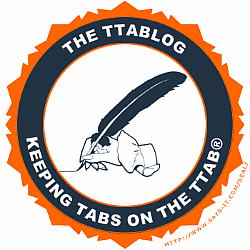The Top Ten TTAB Decisions of 2006® [Part 2 of 2]
The second quintet of TTAB decisions (well, four decisions and an Order) rounds out my list of "The Top Ten TTAB Decisions of 2006®." The first five were posted here yesterday. In the second batch, frequent TTAB litigant Leo Stoller makes another appearance, thanks to his aborted extension request campaign that led to a TTAB Sanction Order. Mutilation, genericness, concurrent use, and disparagement join him on the list.

In re Nutraceutical Corp., Serial No. 78975072 (March 13, 2006) [not precedential]. Some TTAB Judges are apparently not happy with the CAFC's current test(s) for genericness, Judge Bucher principal among them. Here, the Board panel ignored the CAFC’s American Fertility test applicable to phrases, in affirming a genericness refusal of the term FRESH ORGANICS for fresh fruits and vegetables, unprocessed cereals, and the like, and for retail health food store services. Instead, the Board chose to apply the "compound word" test of In re Gould, which permits a finding of genericness based on dictionary definitions alone. The Board noted that the NEXIS and Internet excerpts were a "mixed bag": some of the evidence "does not point unquestionably toward genericness," while several of the examples "appear to be references to applicant." Nonetheless, the Board observed that "Applicant has done no more that combine terms that are individually generic in relation to its goods and services. Thus the composite is likewise generic." "Based on these dictionary definitions and our common parlance of the English language, we find that the relevant purchasing public would readily understand that 'Fresh Organics' indicates that a variety of fresh, unprocessed and/or raw food items have been grown organically." (TTABlogged here). See also, the WELDING, CUTTING, TOOLS & ACCESSORIES case (TTABlogged here), and Judge Bucher's dissent in the DIGITAL INSTRUMENTS decision (TTABlogged here).
In re 1175856 Ontario Ltd., 81 USPQ2d 1446 (TTAB 2006) [precedential]. I have it on good authority that the Board is not happy with the PTO's approach to mutilation refusals. Here, the Board reversed a refusal to register the mark WSI and Design (below left), finding that the mark on the application drawing was not a mutilation of the mark as depicted in the specimen of use (right). The sole issue was whether the mark, as it appears on the drawing, is a substantially exact reproduction of the mark as used on the specimens. See Trademark Rule 2.51(a), 37 C.F.R. Section 2.51(a). Of course, the focus of the case was on the omission of the curved design element that appears in the specimen.

The Board was "mindful of the fact that in an application under Section 1 of the Trademark Act, the applicant has some latitude in selecting the mark it wants to register. TMEP Section 807.12(d)(4th ed. April 2005)." The Board agreed with Applicant that "the lettering and globe design shown in the drawing create a separate commercial impression apart from the curve design." "Here, the lettering WSI and the globe design, serving as part of the letter I, join to convey to the consumer the brand name of applicant’s services and act together as an indication of source separate from the curve design." (TTABlogged here).
CDS, Inc. v. I.C.E.D. Management, Inc., 80 USPQ2d 1572 (TTAB 2006) [precedential]. Concurrent use decisions are as rare as a traffic cop in Boston, but the Board provided an important one (decision, not cop) in 2006. It held that Applicant CDS is entitled to a concurrent use registration for the mark THE COPY CLUB for various document copying, publishing, and management services "for the State of Kansas and that portion of the state of Missouri located within 50 miles of Lenexa, Kansas." In turn, I.C.E.D.’s registration for the mark COPY CLUB for similar and overlapping services was "restricted" to the entire United States except for the area of CDS’s registration. Applicant sought registration for seven states: Utah, New Jersey, New York, Connecticut, Pennsylvania, Kansas, and Missouri. The Board applied the Weiner King test in finding that CDS’s use in Utah, New Jersey, New York, Connecticut, and Pennsylvania was "de minimis and nebulous." However, CDS did show use of its mark in Kansas and was entitled to the entire state; in addition, because a large percentage of CDS’s business in Kansas City comes from Missouri, the Board awarded CDS a portion of Missouri. I.C.E.D. argued that there would still be confusion because both parties advertise on the Internet, but the Board flatly rejected that argument: "We do not believe that the creation of the Internet has rendered the concurrent use provision of the Trademark Act moot." (TTABlogged here).
TTAB Issues Sanction Order to Leo Stoller (July 14, 2006). The Board sanctioned frequent TTAB litigant Leo Stoller for his "misuse of the TTAB’s procedures" by filing more than 1,800 requests for extension of time to oppose since November 2005. The Board found that the filings were made "for improper purposes, namely, to harass the applicants to pay you to avoid litigation or to license one of the marks in which you assert a baseless claim of rights." The Board consequently vacated "[t]he approval of each request for extension of time to oppose that you have filed since November 2005." Moreover, any notice of opposition filed by Stoller against any of the involved marks "shall be dismissed." In addition, for the next two years, Stoller was banned from filing, on his own behalf or as an officer, director, or partner of any entity that he controls, any request for extension of time to oppose. This ban applies regardless of whether Stoller is represented by an attorney. After that two-year period, Stoller is PERMANENTLY barred from such filings, but an attorney may file a request on his behalf. The Board concluded that Stoller was "holding up thousands of trademark applications in an attempt to coerce applicants to license, i.e., 'rent,' trademarks to which you have not demonstrated any proprietary right," and that "the extension requests here at issue were filed for improper purposes, specifically 'to obtain additional time to harass applicant, to obtain unwarranted extensions of the opposition period, and to waste resources of applicant and the Board." (TTABlogged here).

In re Squaw Valley Devpt. Co., 80 USPQ2d 1264 (TTAB 2006) (on reconsideration) [precedential]. The PTO succeeded in obtaining partial reversal of the TTAB's decision overturning Section 2(a) disparagement refusals of the marks SQUAW and SQUAW ONE for clothing, ski equipment, and retail store services. The Board again applied the test of Harjo v. Pro-Football, Inc., 50 USPQ2d 1705 (TTAB 1999) [reversed on other grounds] ["Harjo I"], but concluded that it had imposed the wrong standard of proof; it now found the PTO's evidence "sufficient to establish prima facie that applicant's marks disparage a substantial composite of Native Americans when used in the context of applicant’s goods and services." Applicant failed to overcome the PTO's case since it did not submit "any evidence which suggests that Native Americans do not view ‘squaw’ as a [disparaging] term for its Class 25 and 35 goods and services." However, the Board maintained its finding that, when used in connection with ski equipment, the primary meaning of SQUAW is the SQUAW VALLEY ski resort. Thus as to those goods, Applicant successfully rebutted the PTO's prima facie case that SQUAW is disparaging. (TTABlogged here).
"The Top Ten TTAB Decisions of 20**" is a Registered Trademark of John L. Welch. Text Copyright John L. Welch 2007.




0 Comments:
Post a Comment
<< Home